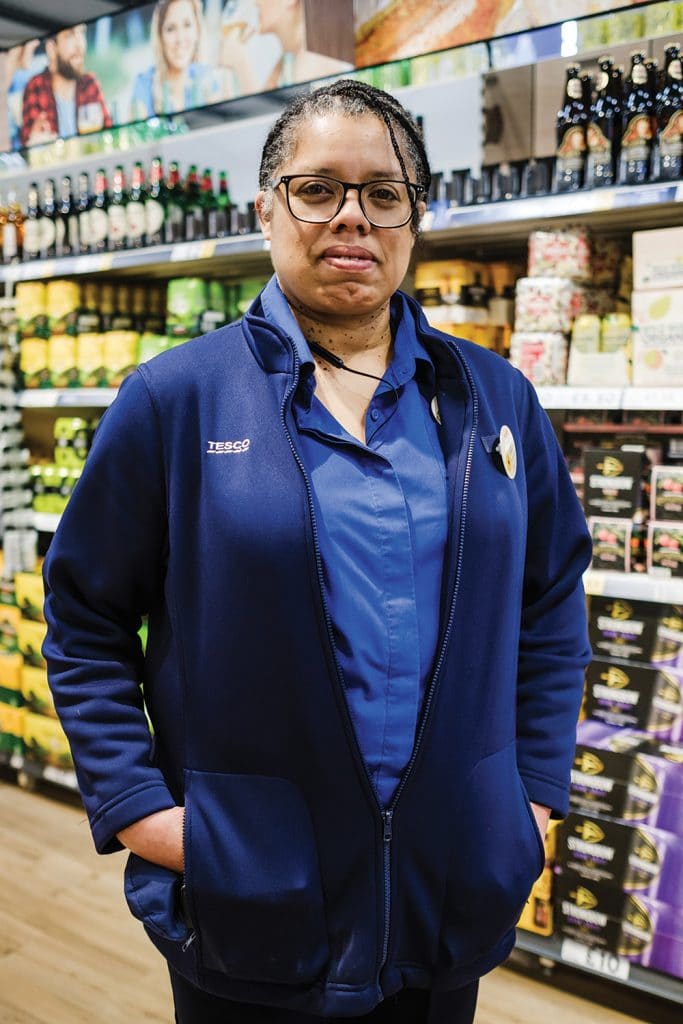Debbie
The Key Worker

Debbie Olive has been a key worker for 25 years. She works in Tesco Extra in Durrington – the largest supermarket on the south coast. During the Covid-19 pandemic, the significance of her role was highlighted along with other food chain workers to ensure the production, processing, distribution, sale and delivery of goods when the country was locked down.
As the first lockdown loomed there was a noticeable increase of trade at supermarkets. Debbie’s shift starts at 6am, but she noticed customers arriving earlier to do their shopping. Extra staff were needed from other departments to cover the tills.
As fear of the severity of the pandemic spread, panic buying became a much publicised issue. People were bulk buying meat, pasta, rice, toilet rolls and tinned goods. It was surreal for Debbie to see empty shelves at work. “ Everything just disappeared from the shelves at one point. Seeing empty aisles of toilet rolls made me sad to think people would leave them in that state and that we could run out of basics that everyone needs.”
As time went on, temporary staff were employed and others like Debbie worked overtime. “It was mentally exhausting working on the cash till when it was so busy.”
Major supermarkets acted quickly to restrict people buying too much. Alcohol sales in particular were difficult; “in my experience, customers tried buying a lot of alcohol – I understand – the nation having to cope with tough times, but we had to adhere to the bulk buying restrictions, it was tough.”
When the government announced the first national lockdown in March 2020, Debbie didn’t feel concerned or phased about the Covid situation. “We always knew that we weren’t going to close because we’re one of the biggest supermarket chains and for us to close it would have been drastic.”
“I wasn’t worried about getting Covid at work. We were given gloves and masks then eventually screens in front of the tills. Social distancing was put into place and one way systems through the aisles. Clinically vulnerable staff were supported by the company and sent home on full pay.”
Before lockdown Debbie attended the gym for regular classes and to swim, but stopped when they closed. She started walking 4 miles every other day, and in the summer rode her bike on the South Downs to manage the mental exhaustion of working on the front line.
There were also acts of kindness experienced on the supermarket front line. “Some customers were really lovely. People would say “thank you for working”, wish us well, and a few gave chocolates and sweets to be shared amongst the staff which was nice. I was just a person doing my job.”
